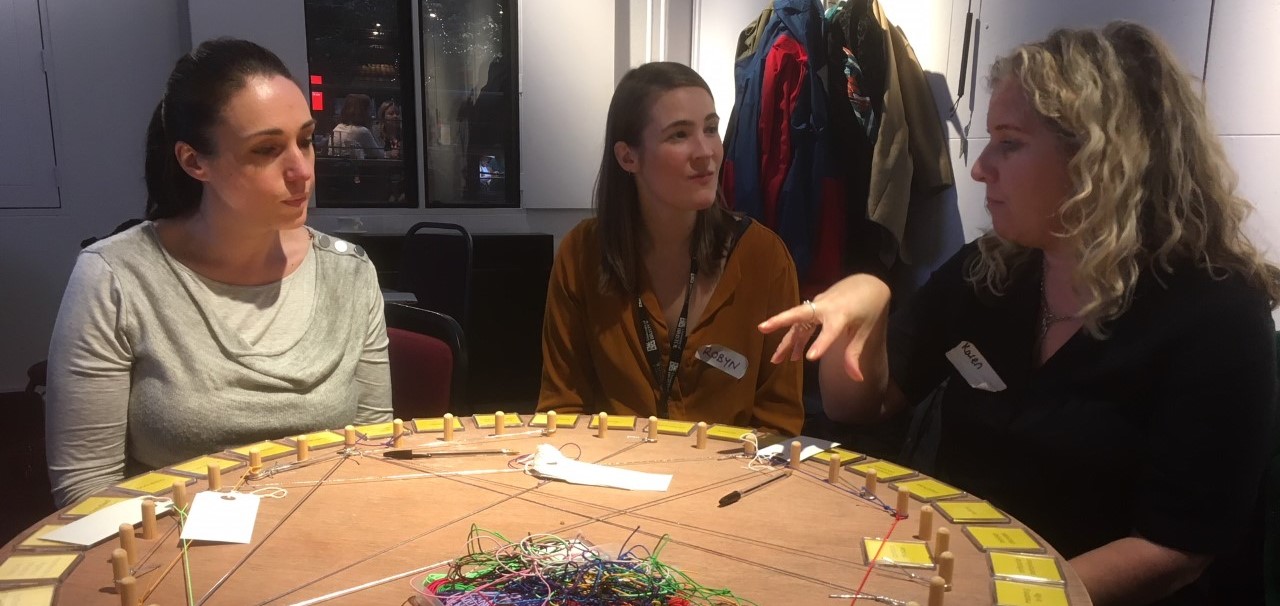Stakeholder engagement improves understanding of what impacts mental wellbeing
How a workshop connecting with local government, charities and others helped generate new ideas for our future research around causal risk factors for mental health, with a particular focus on substance use.
In our research we identify causal risk factors for mental health, with the aim of prevention. We want to understand how factors such as smoking, alcohol and exercise impact subsequent mental health, in particular depression, anxiety and wellbeing. We explore these questions using genetic epidemiology methods.
Better understanding of mental health is crucial to improving population health. However, epidemiological research can feel removed from the people we are helping and the organisations looking to support them.
How we supported engagement
To help bridge this gap, we brought people together from different backgrounds to collaborate in a workshop held in central Bristol in January 2020 to help guide the future of mental health research. Our workshop included people from local government, funders, and local charities such as WellAware, Off the Record, and WomanKind. We presented our existing project ideas to get feedback and ran interactive activities to generate new research questions.
We fostered engagement between stakeholders in a range of ways. For example, we started the workshop with a fun activity called Snowballs and Aeroplanes, where people wrote down the most important things for young people's mental health - and then threw them to other tables for their groups to discuss. This was a great way to stimulate discussion.
In another activity, we used the IEU variable wheel (pictured) surrounded by 50 measures of mental health and potential risk factors that have already been collected in the Avon Longitudinal Study of Parents and Children (ALSPAC). People used strings to connect these measures, based upon hypotheses driven by their work with individuals with mental illness. On luggage tags, they wrote down why they thought this association might exist. This activity revealed the importance to charities of issues like the significant impact of social media on eating disorders.
It was really inspiring to hear about the great work these charities were conducting and it has helped to ensure our research ideas have greater impact. The workshop really reinforced for us the importance of research on mental illness. For example, we learnt about the mental health challenges people face in Bristol, and it was difficult hearing the concerns raised by women’s refuge charities and learning about suicide among young people.
How the workshop impacted participants
We received positive feedback from participants about the workshop. Participants found the day interesting and enjoyable and they shared how it enabled them to make connections with each other. They appreciated the opportunity to influence research agendas and they look forward to continued collaborations on current work.
How this is feeding back into IEU research
The insight gained during the workshop was valuable for our research. Many of the participants’ insights connected directly with our work at the Tobacco and Alcohol Research Group (TARG). For example, before the workshop, our work had predominantly focused on risk factors for mental illness onset. However, we learnt that charity stakeholders were more interested in how to improve existing mental health symptoms.
This insight has also fed into grant proposals and Robyn now has a fellowship at Lovisenberg Hospital in Oslo that has been born out of these ideas. Called the Recover project, it uses genetic epidemiology methods to look for predictors of favourable outcomes amongst those with mental illness. Ideas generated from this workshop also fed into a Cancer Research UK grant, which will fund future substance use and mental health data collection in ALSPAC based upon the ideas and suggestions of the attendees.
The insights from the workshop showed why public participation and involvement with people that have lived experiences is invaluable. Our workshop made us more aware of the need to supplement studies on population mental health with samples of individuals who are currently experiencing acute mental illness. This feeds into work we are now doing on using smartwatches to measure mental health symptoms and health behaviours in people with mental illness. We are co-producing the protocol with individuals with lived experience because our workshop highlighted the importance of involving people early in the process.
And the experience from these workshops has fed back into the wider work of the IEU. We shared our experiences with other researchers at the IEU in a knowledge exchange seminar to highlight the ideas generated and feedback. Since then, others within the IEU have planned collaboration with charities and people with lived experience into their own research, and we have helped others to write this into their grants. We have also included patient and public involvement (PPI) groups and panels in grants to make sure the voices of those with lived experience and the charities working with them have their voices heard early in the process of designing research.
Involving researchers from diverse research backgrounds in workshops with charities and patient and public groups opens opportunities and allow qualitative and clinical researchers to engage and understand community needs better.
Follow @MRC_IEU for more ways to connect with IEU’s research.
Our workshop made us more aware of the need to supplement studies on population mental health with samples of individuals who are currently experiencing acute mental illness. This feeds into work we are now doing on using smartwatches to measure mental health symptoms and health behaviours in people with mental illness.
